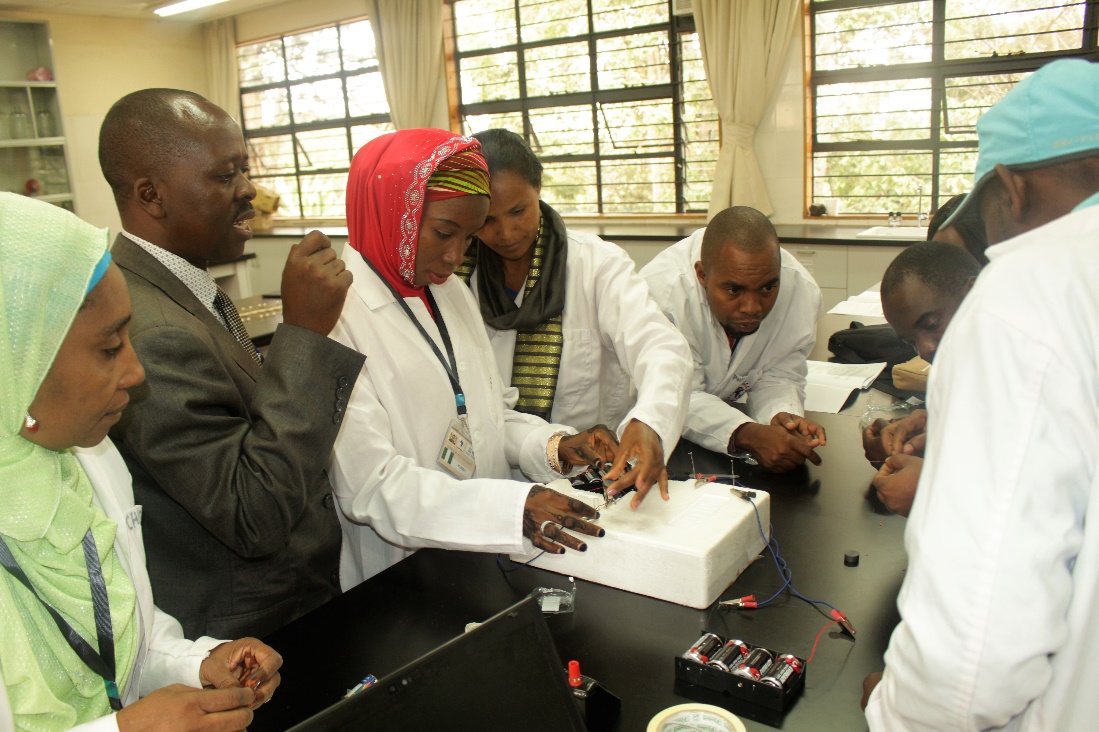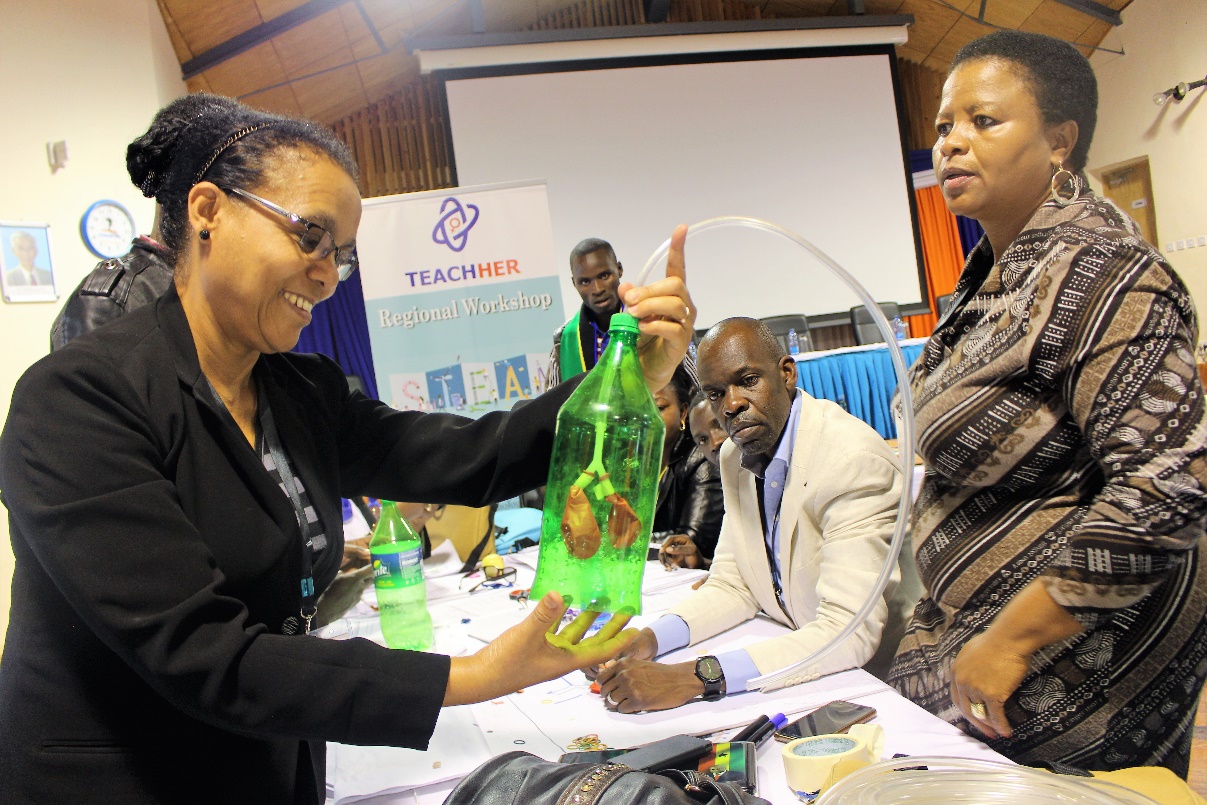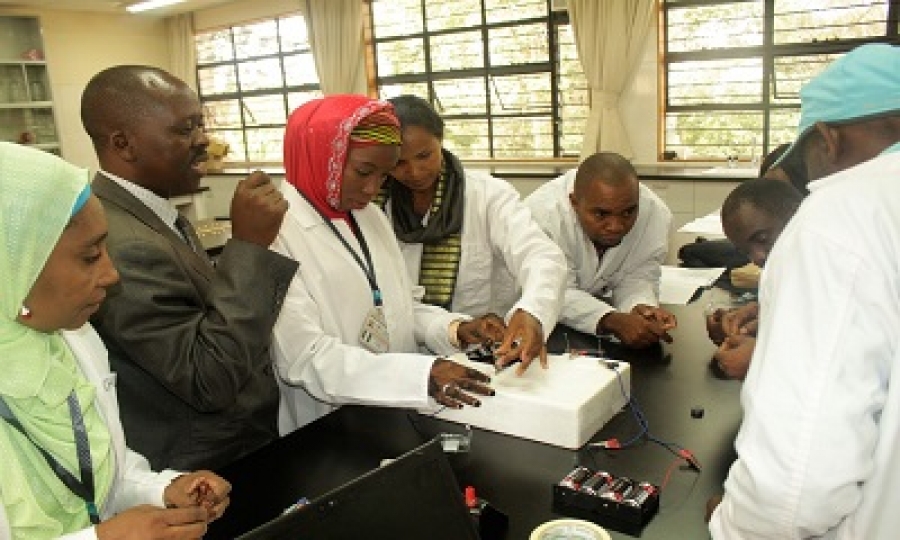Training for teachers to encourage girls into science fields held in Nairobi
By Joe Ombuor | Published Sat, July 29th 2017 at 17:46, Updated July 29th 2017
A regional teacher training forum in Nairobi has among other recommendations called for the use of female teachers as role models to help hone girls’ interest in science related subjects and subsequently, science oriented professions. The five-day training christened TeachHer brought together 80 male and female teachers from 10 African countries at the Centre for Mathematics, Science and Technology Education in Africa (CEMASTEA) in Karen. Calls were made for a deliberate effort to minimize the widely held but erroneous notion that science and technical disciplines are a preserve of the male gender.
A prototype known as ‘job shadowing’ that involves attaching interested girls under technical professionals to expose them to the field for brief periods was cited as an ideal affirmative action to influence their choice of scientific disciplines. “The girls are bound to learn and whet their interest in these male dominated areas while doing light duties such as organizing files or helping with clean up,” said Mr. Robert Masese, the Director of Secondary and Tertiary Education who officially opened the training on behalf of Education Cabinet Secretary Dr. Fred Matiang’i.
It was noted that fathers in particular have a key role to play in influencing their daughters into subjects exposing them to science based professions such as engineering, architecture, medicine and others. He local praised girls’ schools that had demystified science subjects including mathematics by competing effectively and beating boys’ schools, giving the example of Pangani Girls High School in Nairobi that is a unrivalled in Mathematics.
“We have schools like Kenya High School, a girl’s institution in Nairobi where wood work thought to be a sanctuary of boys features among the best performed subjects,” noted Mr. Masese.
He said time when women sat back and watched men take on technical challenges was long gone.
Dr Matiang’i in a speech read by Mr. Masese thanked the Paris based US mission to United Nations Educational, scientific and Cultural Organization (UNESCO) for funding the programme that would go a long way in improving Science, Technology, Engineering and Mathematics (STEAM) education for girls through learner centered teaching and learning practices.
He acknowledged the existence of a significant gender disparity in STEAM education that has to be narrowed in order to provide adequate and balanced work force for private and public sectors for rapid development. “We need to invest in preparing young women to take up 21st century STEAM careers,” said Dr Matiang’i.
Towards that end, disclosed Dr. Matiang’i, the ministry of education through the participation of CEMASTEA had rolled out a Science, Technology, Engineering and Mathematics (STEM) programme established in 94 model secondary schools, two each of 47 counties across the country. “The programme is expected to help activate, train, inspire and sustain more students particularly girls willing to enroll in STEAM fields,” said Dr Matiang’i.
The Director of CEMASTEA Mr. Stephen Njoroge hailed Kenya’s Ambassador and Permanent Representative to UNESCO Prof. George Godia who graced the occasion for lobbying to bring the second edition of TeachHer to Nairobi. He advised the beneficiaries to share their experience widely with colleagues in their respective countries.
Mr. Njoroge called on African nations to appreciate its intelligentsia. “Our nations must contrive ways to accommodate its intelligentsia instead of punishing them for possessing critical minds. That is important if manufacturing and technology are to take hold on the continent,” he noted.
The Director said Intelligent people were easily bored and should not be neglected if for reasons including impatience, they do not complete official education. “These in the West are the Bill Gates, Richard Branson and Steve Jobs of this world. Here, we waste instead of harness their brains,” said Mr. Njoroge.
Participants in the training were drawn from Kenya, Ethiopia, Madagascar, Nigeria, South Africa, Senegal, Tanzania, Zambia and Zimbabwe. It was the second such training since the first edition was launched last year in Addis Ababa, Ethiopia.

Participants taking part in a Physics activity at the 2nd Teachher Training workshop held CEMASTEA

Participants taking part in a Biology activity at the 2nd Teachher Training workshop held CEMASTEA
Latest from
- TEACHING AND LEARNING DURING COVID-19 PANDEMIC: INSIGHTS FROM SELECTED MATHEMATICS AND SCIENCE TEACHERS IN KENYA
- 3rd iTOYA OF THE YEAR AWARD
- CEMASTEA strive for the Best
- Mathematics and Science teachers undertake training dubbed: “Effective use of Learner-Centred strategies in Teaching and Learning”
- CS Amina Flags off the 3rd Batch of STEM Equipment Distribution


